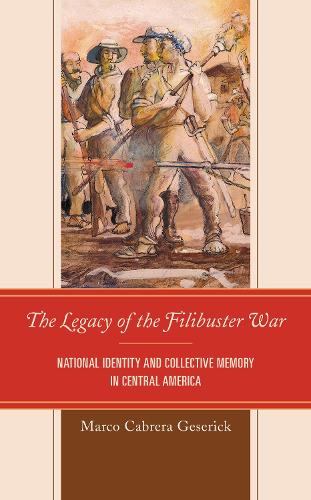
The Legacy of the Filibuster War: National Identity and Collective Memory in Central America
(Hardback)
Publishing Details
The Legacy of the Filibuster War: National Identity and Collective Memory in Central America
By (Author) Marco Cabrera Geserick
Bloomsbury Publishing PLC
Lexington Books
24th June 2019
United States
Classifications
Professional and Scholarly
Non Fiction
972.8604
Physical Properties
Hardback
176
Width 160mm, Height 229mm, Spine 19mm
449g
Description
The Legacy of the Filibuster War: National Identity and Collective Memory in Central America analyzes the development of the Filibuster War as a symbol of Costa Rican national identity and presents several challenges to traditional theories of modernization and the creation of nationalism. By focusing on the development of cultural features defined by the transformation of collective memory, Marco Cabrera Geserick argues that national identity is a dynamic process defined according to local, national, and international contexts. Modernization theories connect the creation of symbols of official nationalism with the period of consolidation of the nation-state, yet the Filibuster War started its rise to Costa Rican national identity years later. Cabrera Geserick analyzes the threats to sovereignty and imperialist advances that served to promote the memory of the Filibuster War, while local social transformationssuch as the abolition of the army, the rise of popular forces, and internal political conflicthave continued to force drastic changes on the interpretation of the war.
Reviews
The Legacy of the Filibuster War: National Identity and Collective Memory in Central America deals with the political uses of the memory of the Costa Rican army's victory in the 1856-57 war. The goal of the book is to contribute to the debate begun a few decades ago. Specialists in the field of nation-state building, national identity, and nationalism, as well as historians in general, will find this book useful.
-- "Hispanic American Historical Review"Author Bio
Marco Cabrera Geserick is instructor at High Point University.
